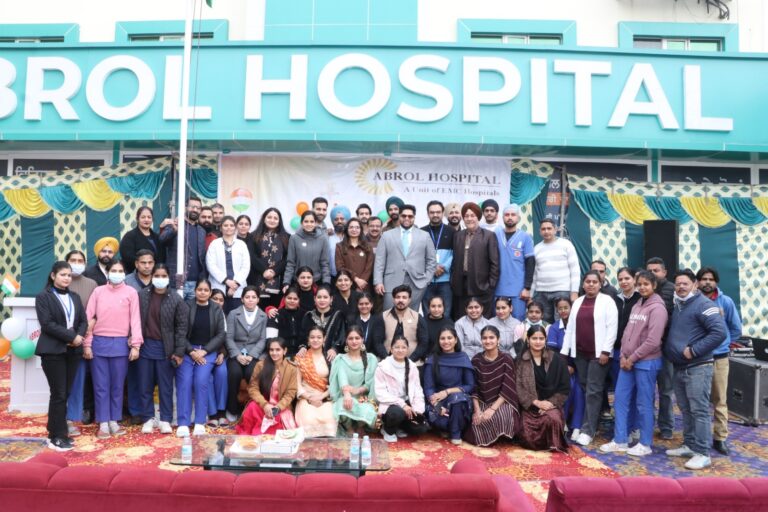EMC Hospital, Amritsar: Restless Legs Syndrome – Causes, Symptoms, Diagnosis, and Treatment By Dr. Arjimand
Amritsar, EMC Hospital — In today’s fast-paced world marked by modern lifestyles and increasing mental stress, several health issues are emerging—one of which is Restless Legs Syndrome (RLS), commonly referred to as “leg restlessness.” This neurological disorder causes an unusual tingling, pulling, burning, or crawling sensation in the legs. The discomfort typically intensifies during rest or at night while trying to sleep, compelling the person to move or shake their legs for relief. As a result, sleep gets disrupted, leading to daytime fatigue, irritability, and lack of concentration.

According to Dr. Arjimand, Senior Neurologist at EMC Hospital, Amritsar, “Restless Legs Syndrome is not just simple restlessness; it is a complex neurological condition linked to the brain and nervous system.” It can occur at any age but is more common in middle-aged and elderly individuals. In some cases, the condition may be temporary, while in others, it can persist for years. The primary causes include iron deficiency, nerve weakness, kidney disorders, pregnancy, and side effects of certain medications. In some cases, it is genetic, meaning that if a family member has experienced it, the next generation might also show symptoms.
The symptoms of RLS usually develop gradually and worsen over time. Initially, the patient may experience mild tingling or discomfort in the legs, but later it can become unbearable—especially at night or during periods of rest. The constant lack of sleep and unease can affect mental health and overall quality of life.
Diagnosis of RLS is primarily based on clinical symptoms and medical history. There is no specific test for RLS, but doctors may conduct blood tests, a sleep study, or neurological examinations. Blood tests help detect deficiencies of iron, folic acid, or vitamin B12. Sleep studies monitor body activity during sleep to observe any irregular movements. If nutritional deficiencies or nerve issues are detected, treatment is planned accordingly.
Dr. Arjimand emphasizes that RLS is completely treatable if diagnosed in time. Treatment includes lifestyle modifications, dietary changes, regular exercise, and medications when necessary. Patients are advised to avoid caffeine, nicotine, and alcohol, as these can worsen symptoms. Iron supplements or iron-rich foods such as spinach, lentils, fish, and dry fruits are beneficial when iron deficiency is present. To manage stress, yoga, meditation, and deep breathing exercises are highly effective.
He further adds, “Restless Legs Syndrome should not be ignored, as untreated cases can lead to severe sleep deprivation, depression, and reduced productivity. Although it may seem minor, it significantly impacts both mental and physical health.” With proper medical care and timely treatment, patients can return to a completely normal lifestyle.
Dr. Arjimand urges people to seek medical advice if they frequently experience leg restlessness, tingling, or disturbed sleep. He stresses that awareness and early diagnosis are key to controlling the condition. Adopting a healthy lifestyle, maintaining a balanced diet, and managing stress play vital roles in prevention. He concludes by saying, “Never ignore your body’s signals—timely attention can prevent complications and restore a healthy, restful life.”





